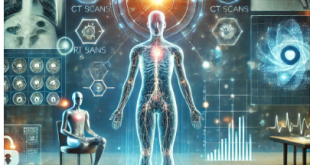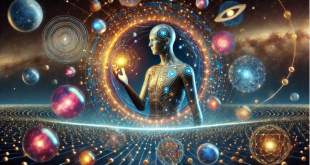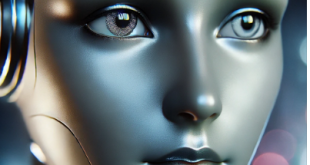A Leap into the Future of Justice
The rise of AI is transforming different aspects of our lives, from how we purchase and communicate to how we determine diseases. One of the most idea-trigger and debatable applications of AI lies in its potential role in the judicial system.
Imagine a world where AI doesn’t just assist judges but takes on the role of the judge itself. Could this lead to a fairer, faster, and more compatible justice system? Or does it risk creating a terrifying reality where humanity loses its morality?
The Case for AI in Judiciary
AI has already made incursion into the legal field. Predictive analytics, powered by AI, helps lawyers to foresee case outcomes. Natural language processing tools assist in legal research by filter through enormous databases in seconds. The next frontier? AI as the judge.
advocate argue that AI could address many inefficiencies and biases in the current system:
- Impartiality: Human judges, despite their training, are susceptive to biases—whether conscious or unconscious. An AI judge, programmed with fairness as a core principle, could make decisions based utterly on facts and legal prior instance.
- Consistency: Inconsistency in sentencing and verdicts across different courts and judges are common. AI could systematize rulings, ensuring equal treatment for similar cases.
- Efficiency:There are backlog problems in courts everywhere. AI can speed up processes, allowing for timely judgments and freeing up the judicial system.
- Cost-effectiveness: It will be less expensive to automate some aspects of the judicial process. Access to justice will be possible for everyone.
Challenges and Concerns
Challenges and Concerns
While the potential benefits of AI in judiciary are compelling, they come with significant challenges:
- Ethical Dilemmas: Justice is not merely a question of the rule, but also a question of empathy, context, and the recognition of human complexity. Can AI truly understand the subtlety of moral reasoning?
- Bias in Data: AI systems learn from historical data. If such data reflects societal prejudices, then an AI system could perpetuate them or even magnify them.
- Accountability: Who is held liable if an AI judge mistakenly or unfairly decides a case? The developers, the operators, or the institution that employs the AI?
- Erosion of Trust: Most citizens would be uncomfortable with their lives and destinies determined by a machine. Complete removal of the human touch could bring about a decline in people’s trust in the courts.
- Security Risks:AI systems are susceptible to hacking and fraud. A compromised AI judge may open up a Pandora’s box.
Finding the Balance
The concept of AI being a judge is not replacing judges but complementing their capacities. A hybrid system would, perhaps be more practical, where the machine assists human judges in sifting cases, suggesting precedents, and providing unbiased insights.
For example, AI may take up petty, repetitive cases like traffic violations, which will then free up the human judges to focus on the more complicated matters. In such a system, humans will always have the final word, so that the moral and ethical considerations are not lost.
A Vision for the Future
As AI becomes more integrated into our judicial systems, it is crucial to establish robust frameworks that govern its use. This includes:
- Transparent Algorithms: AI should be explainable. It is the need of the hour to have transparency in their decision-making process.
- Ethical Oversight:A multidisciplinary team of ethicists, legal experts, and technologists must monitor and guide the development and application of AI.
- Public Engagement:Involvement and informing the public on matters concerning the role of AI in justice is needed to ensure public trust and acceptance.
Conclusion
The prospect of AI as a judge challenges us to rethink what justice means in an era of rapid technological advancement. While the efficiency and impartiality of AI are attractive, they must not come at the expense of humanity’s core values.
Striking the right balance between technology and ethics will be the key to ensuring that justice remains just in an AI-driven world.
Whether we shall have AI as judge one day is not only important, but how we‘ll form it as a social agent; whether it will remain for people the tool of fairness or instrumentality of cold efficiency.


